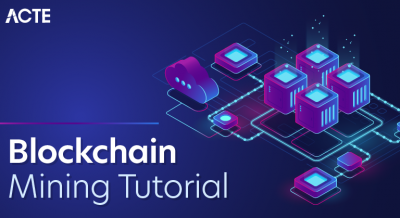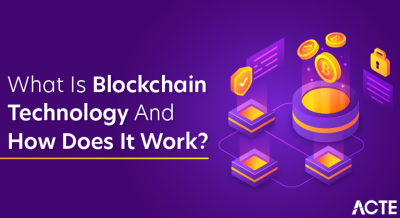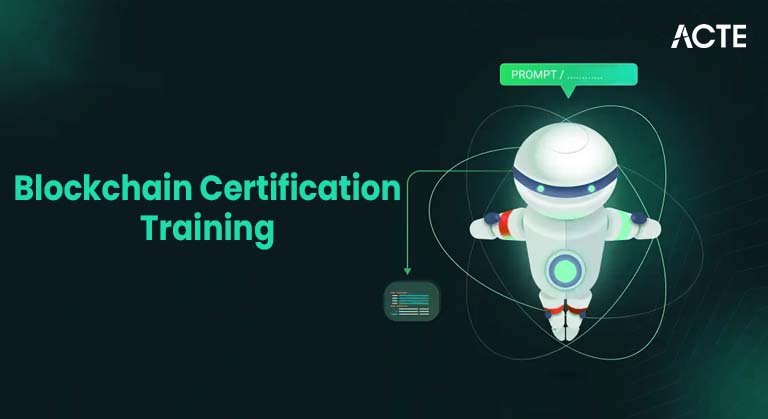
- Introduction to Blockchain Certification Training
- Why Blockchain Certification Matters
- Key Concepts Covered in Blockchain Training
- Types of Blockchain Certification Programs
- Who Should Pursue Blockchain Certification?
- Benefits of Blockchain Certification Training
- How to Choose the Right Blockchain Certification Course
- Career Opportunities After Blockchain Certification
- Conclusion
Introduction to Blockchain Certification Training
Blockchain technology has rapidly transformed from a niche concept underpinning cryptocurrencies into a revolutionary force disrupting various industries. With its applications in finance, supply chain, Decentralized , healthcare, and government sectors, the demand for skilled blockchain professionals is skyrocketing. Beyond cryptocurrencies, Ethereum, Cryptography, blockchain technology is quickly becoming popular in many other areas. As a result, there is an increasing need for experts in developing, putting into practice, and overseeing blockchain solutions. By equipping people with the skills and information required to thrive in this rapidly changing industry, blockchain certification training programs seek to close this skills gap. Blockchain Certification Training offers learners an opportunity to master blockchain concepts, tools, and real-world applications. These structured programs combine theoretical knowledge with hands-on experience, enabling participants to develop, deploy, and manage blockchain-based solutions effectively.
Interested in Obtaining Your Blockchain Certificate? View The Blockchain Training Course Offered By ACTE Right Now!
Why Blockchain Certification Matters
In an emerging and fast-evolving technology domain, certification serves as a formal recognition of expertise. Here’s why blockchain certification is important:
- Validates Your Skills: Demonstrates your understanding of blockchain fundamentals and advanced concepts.
- Boosts Employability: Employers often prefer certified professionals to ensure competence.
- Keeps You Updated: Blockchain is continuously evolving, and certification programs incorporate the latest trends and best practices.
- Builds Credibility: Certification distinguishes you from others and establishes trust with peers and employers.
- Facilitates Networking: Many certification courses connect you with industry experts and like-minded professionals.
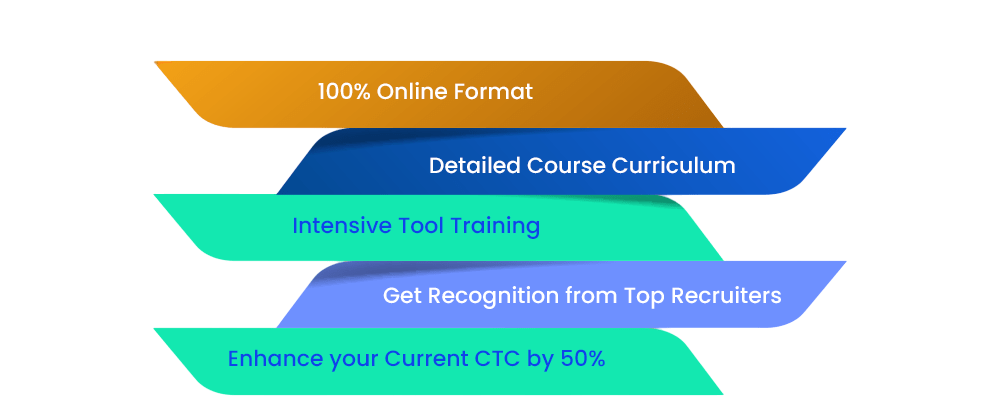
Key Concepts Covered in Blockchain Training
A comprehensive blockchain certification training covers several essential topics, including:
- Blockchain Fundamentals: Understanding blocks, chains, nodes, consensus mechanisms, and decentralization.
- Cryptography: Hashing, digital signatures, public-private key encryption.
- Smart Contracts: Writing and deploying self-executing contracts, primarily on platforms like Ethereum.
- Consensus Algorithms: Proof of Work, Proof of Stake, Delegated Proof of Stake, Practical Byzantine Fault Tolerance, etc.
- Blockchain Platforms: Ethereum, Hyperledger Fabric, Corda, Solana, and others.
- Security and Privacy: Ensuring blockchain data integrity and confidentiality.
- Real-World Use Cases: Supply chain, finance, healthcare, voting, identity management, and more.
- Hands-on Projects: Developing blockchain apps, smart contracts, or tokens.
Types of Blockchain Certification Programs
There is a variety of certification programs designed for different levels and interests:
- Beginner-Level Certifications: Ideal for those new to blockchain technology. Focuses on fundamentals and basic blockchain applications.
- Developer Certifications: Targeted at software engineers who want to build and deploy blockchain solutions, smart contracts, and Decentralized .
- Enterprise Blockchain Certifications: Focus on blockchain applications in enterprises, covering platforms like Hyperledger Fabric, Corda, and blockchain strategy.
- Specialized Certifications: Cater to niche areas such as blockchain security, cryptography trading, or blockchain governance.
- Vendor-Specific Certifications: Offered by major blockchain platform providers or institutions (e.g., IBM Blockchain certification, Ethereum developer certification).
- Software Developers & Engineers: To build decentralized applications and smart contracts.
- IT Professionals & Network Administrators: To manage blockchain infrastructures.
- Business Analysts & Consultants: To identify blockchain use cases and strategy.
- Project Managers: To oversee blockchain projects and implementations.
- Students & Fresh Graduates: To gain a competitive edge in job markets.
- Entrepreneurs & Innovators: To understand blockchain potential for startups.
- Career Advancement: Certified professionals enjoy better job prospects and higher salaries.
- Practical Skill Development: Hands-on training equips learners to solve real blockchain problems.
- Recognition by Industry: Certification is often recognized globally by employers and blockchain communities.
- Access to Resources and Communities: Many certification programs provide access to exclusive materials and professional groups.
- Preparation for Blockchain Roles: Whether it’s blockchain developer, architect, consultant, or analyst, Cryptography certification prepares you for diverse roles.
- Curriculum: Ensure it covers topics relevant to your goals.
- Level: Beginner, intermediate, or advanced.
- Instructor Expertise: Learn from industry professionals or recognized academics.
- Hands-On Projects: Practical experience is crucial.
- Certification Credibility: Check accreditation or industry recognition.
- Format: Online, offline, self-paced, or instructor-led.
- Cost: Compare fees and value for money.
- Reviews and Testimonials: Look for feedback from previous learners.
- Blockchain Developer: Develop smart contracts, DApps, and blockchain systems.
- Blockchain Architect: Design blockchain infrastructure and solutions.
- Blockchain Consultant: Advise organizations on blockchain strategy and implementation.
- Crypto Analyst/Trader: Analyze cryptocurrency markets and trends.
- Project Manager (Blockchain Projects): Lead blockchain initiatives and ensure timely delivery.
- Security Specialist: Protect blockchain systems from cyber threats.
- Quality Engineer: Test blockchain applications for functionality and security.
- Enterprise Blockchain Specialist: Work with permissioned blockchains in industries like finance or supply chain.
To Earn Your Blockchain Certification, Gain Insights From Leading Blockchain Experts And Advance Your Career With ACTE’s Blockchain Training Course Today!
Who Should Pursue Blockchain Certification?
Blockchain certification benefits a wide spectrum of professionals:
Benefits of Blockchain Certification Training
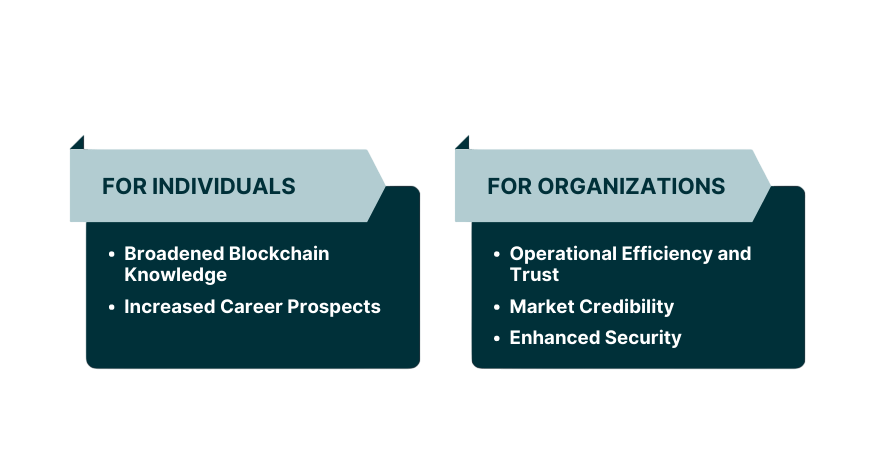
How to Choose the Right Blockchain Certification Course
Choosing the right program depends on various factors:
Career Opportunities After Blockchain Certification
Blockchain technology is creating new jobs and transforming existing roles. The blockchain job market is expected to grow exponentially, and certified professionals are well-positioned to benefit. Certified professionals can explore:
Preparing for a Blockchain Job Interview? Check Out Our Blog on Blockchain Interview Questions and Answers
Conclusion
Blockchain Certification Training is more than just a credential, it’s a pathway to mastering a transformative technology that’s reshaping industries worldwide. Whether you’re a developer, business professional, Decentralized or enthusiast, certification equips you with the knowledge and skills to thrive in the blockchain ecosystem. Professionals knowledgeable about the complexities of blockchain technology are in high demand as it is quickly gaining popularity across a variety of businesses. By giving people the requisite knowledge and useful skills, blockchain certification training programs become an essential means of satisfying this demand. As demand for blockchain expertise rises, Cryptography investing in certification training today can unlock numerous career opportunities and put you at the forefront of the next digital revolution.


